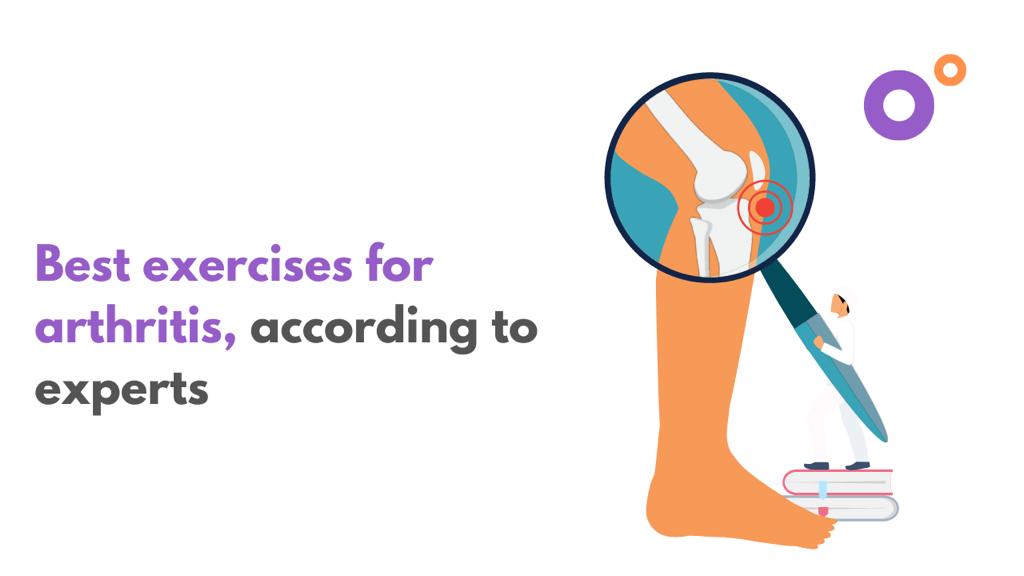
Best exercises for arthritis, according to experts
Medically reviewed by

Dr.Akhil Bansal
Professor & Senior Surgeon - Orthopedics
Exercise is vital for people suffering from arthritis because lack of exercise aggravates joint pain and stiffness. Even moderate exercise can ease the joint pain, help combat fatigue, increase muscle strength and flexibility, controls weight, improve balance, sleep – thus enhance the quality of life.
Lack of exercise actually makes the joints painful and stiff because avoiding exercise weakens supporting muscles and creates stress on the joints. The type of exercise which is best for you depends on the joints involved and your type of arthritis. It is ideal to consult your doctor at FirstCure Health to tailor an exercise plan that will give you the most benefit with least aggravation of the joint painand promote optimal health by combining -- range-of-motion, strengthening and endurance exercises.
Range-of-motion exercises – are also called stretching or flexibility exercises whichreduce stiffness, increase flexibility and the ability to move joints (of knees, hands and fingers). These exercises can be done daily and include simple movements such as gently raising arms over the head or bending joints in a controlled manner or rolling shoulders forward and backward or bending wrist up and down, curlingthe fingers or squeezing a stress ball. These exercises must be done before strengthening or endurance exercises or engaging in any physical activity.
Strengthening exercises – these exercises help strengthen muscles around the affected joints, increase strength and reduce pain. An example of strengthening exercise is weight training. One must give break for a day between these workouts, especially if the joints are swollen or painful.
Aerobic exercises – or endurance exercises help with your overall fitness. They can improve your cardiovascular health, control your weight and give you more stamina and energy. These can be low-impact aerobic and moderate intensity aerobic exercises.
Examples of low-impact aerobic exercisesare walking, bicycling, swimming or an elliptical cycle. Do these exercises for 150 minutes per week and can divide them 10-minute to be less painful for the joints.
Moderate intensity aerobic exercises are the safest and most effective even for a couple of days a week. To determine if you are in the moderate intensity exercise zone, you should be able to carry on a conversation while exercising, though your breathing rate has increased.
Protect your joints
Don’t push yourself too hard as this will increase your joint pain.
Keep the impact low – by keeping joints stress free; opt forstationary or recumbent bicycles, elliptical trainers or exercise in the water.
Apply heat to relax the joints and muscles by warm towels, hot packs or a hot shower—for about 20 minutes.
First move your joints gently to warm upfor 5 to 10 minutes before beginning with range-of-motion exercises or aerobic exercises.
Go slowly Exercise with slow and easy movements. If you feel pain, take a break. Stop if you notice swelling or redness.
Trust your instincts,take it easy and slowly increase your exercise length and intensity.
Tips for exercising
Improve safety and comfort when exercising by the following:
Be consistent – One must be consistent and regular to achieve results. Some days may be less comfortable than othersso adjust accordingly.
Accessorize for comfort – Choose proper shoes for grip, balance and protection; use a slip-resistant yoga mat and wear comfortable clothes.
Seek variety – ofexercises.Reducethe exercise on days when you are in pain.
Listen to the body – to remainas physically activeas possible but avoid discomfort or injuries.
Pay attention to small things – Exercises focuses on large muscle groups so do take time even to exercise smaller parts of the body, like the hands and fingers, toes and feet. Opt for yoga which helps build balance.
Create a daily routine for these exercises.
Exercises to avoid
People with arthritis must avoid strenuous exercise or any exercises which cause pain like high-impact exercises which place strain on the joints. Payattention to body and keep moving because exercise improvesjoint function, builds strength, increases flexibility, helps daily functioning and boost mood. Consult your physical therapist to develop a personalized exercise program for the best possible results.
Why talk to Us?
We at FirstCure have top doctors equipped with most advanced procedures at guranteed lowest cost. We will assist you at every step from booking consultations, second opinions, arranging diagnostic tests, insurance approvals and related paperwork, admission to discharge and post surgery follow up consultation.